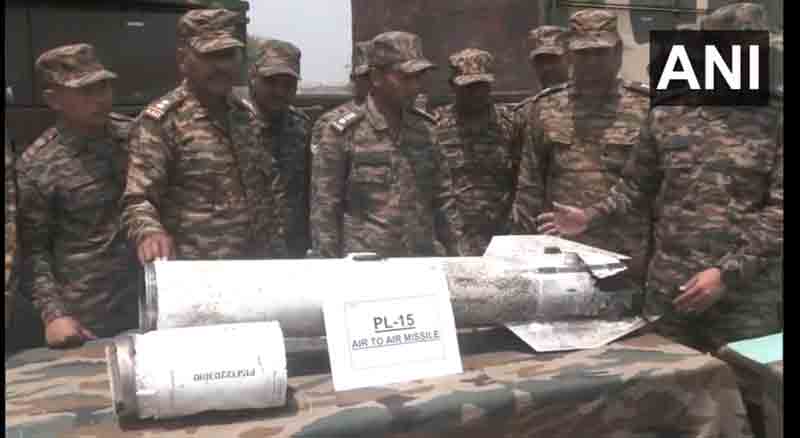During a visit to Tehran today, Monday, Pakistani Prime Minister Shehbaz Sharif extended a peace proposal to India, expressing Islamabad’s willingness to engage in discussions regarding water sharing, counter-terrorism efforts, and the Kashmir issue, provided that New Delhi is “serious.”
وزیراعظم محمد شہباز شریف نے کہا ہے کہ امن کی خاطر بات چیت کے لیے تیار ہیں ۔اگر جارحیت ہوگی تو اس کا بھرپور جواب دیں گے ۔تہران میں ایرانی صدر ڈاکٹر مسعودپزشکیان کے ہمراہ میڈیا سے گفتگو کرتے ہوئے وزیراعظم نے کہا کہ دونوں برادر ملکوں نےتجارت، سرمایہ کاری سمیت مختلف شعبوں میں تعاون… pic.twitter.com/MeJMjnAHql
— PTV News (@PTVNewsOfficial) May 26, 2025
Earlier this month, the two nuclear-armed countries experienced their most severe military confrontation in decades, involving missile and drone strikes deep into each other’s territories, as well as gunfire along their de facto border, the Line of Control, until a ceasefire was declared on May 10.
India initiated the hostilities, claiming it targeted “terrorist infrastructure” in retaliation for a militant attack on April 22 in Indian-administered Kashmir, which New Delhi alleged was orchestrated by Islamabad—a claim that Pakistan refutes. Following the attack, India also unilaterally suspended the 1960 Indus Waters Treaty, which regulates the sharing of river waters between the two nations. The predominantly Muslim Himalayan region of Kashmir is claimed by both India and Pakistan and has been the center of multiple wars and diplomatic tensions.
“We desired peace, we seek peace, and we will strive for peace in the region through dialogue, at the negotiation table, to resolve our outstanding issues,” Sharif stated during a joint press conference with Iranian President Masoud Pezeshkian.
Among the topics Pakistan aimed to address, the Prime Minister mentioned the Kashmir conflict, which he stated must be resolved in accordance with various resolutions passed by the UN Security Council, including one that calls for a plebiscite to determine the future of the predominantly Muslim region of Kashmir. “We are prepared to engage in discussions for the sake of peace regarding water issues with our neighbor, we are willing to converse to enhance trade and also combat terrorism if they are earnest, but if they opt to continue as the aggressor, we will defend our nation and territory,” Sharif remarked. “However, if they accept my peace proposal, we will demonstrate that we genuinely desire peace, earnestly and sincerely.”
The Iranian president also expressed support for the ceasefire established between Pakistan and India. “Certainly, resolving differences through dialogue and in a peaceful manner is essential for achieving sustainable peace and development at the national, regional, and international levels,” Pezeshkian stated. “We believe that in the region, maintaining sustainable security and fostering friendly relations with our neighboring countries is part of the shared policies of Iran and Pakistan.
regional diplomacy tour
Sharif arrived in Iran today, Monday, following a visit to Turkiye as part of a regional diplomacy tour in response to the recent military standoff with India.
Iran’s foreign minister, Abbas Araqchi, had urged for restraint and visited both countries after India’s initial strikes on Pakistan on May 7, which triggered nearly four days of conflict.
On Sunday, Sharif reached Turkiye as the first destination in his diplomatic tour to nations that either supported Islamabad during the recent crisis with India or assisted in mediating the situation. After his visit to Iran, he will continue to Tajikistan and Azerbaijan.
Turkish President Tayyip Erdogan spoke with Sharif by phone on May 7 to express his solidarity after India launched its first attacks on Pakistan and Azad Kashmir with missiles. The leaders of the two nations maintained several communications afterward, and it is widely believed that Turkiye, along with the US, UAE, and Saudi Arabia, played a significant role in persuading India and Pakistan to de-escalate and agree to a ceasefire.
The two countries share strong ties, being predominantly Muslim and having historical connections. Iran’s leadership also proposed to mediate the conflict, leading to multiple discussions between its foreign minister and the Pakistani Prime Minister and other officials.
Discover more from Defence Talks | Defense News Hub, Military Updates, Security Insights
Subscribe to get the latest posts sent to your email.





